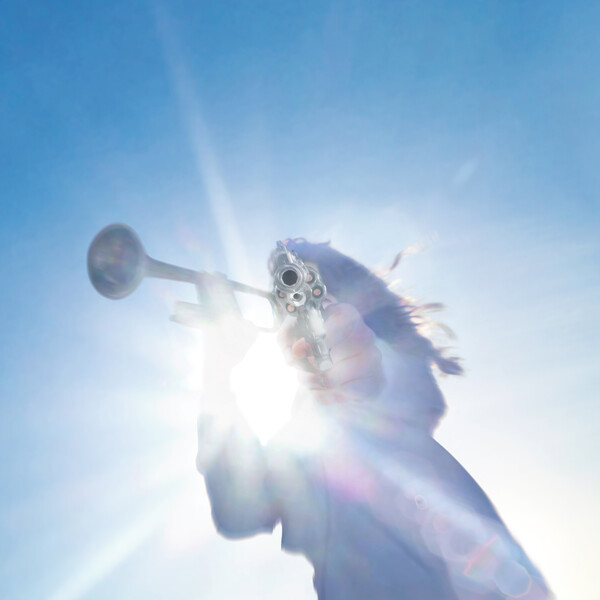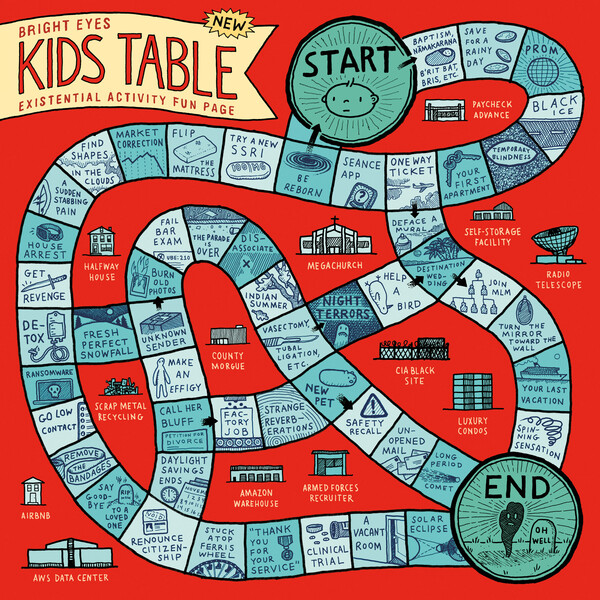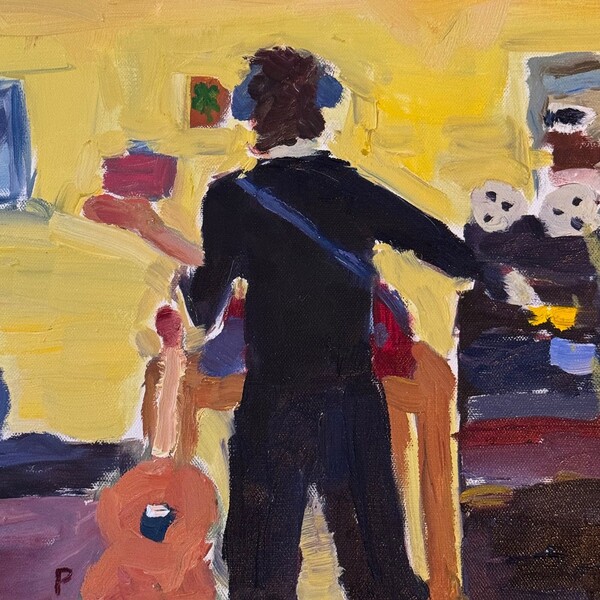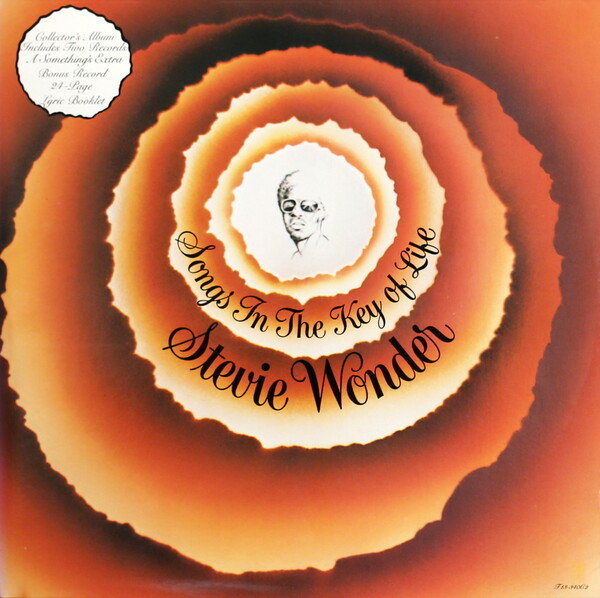This week, I’ve got another four albums for your listening ears. There will be three new albums from the past week (on a monday to monday basis) and one classic album we’re celebrating the anniversary of. New this week is a rework of the rating system we’ve been using to better reflect our feelings on the albums, projects will now be rated out-of-ten including one decimal place, opposed to the previous five-star system.
Getting Killed – Geese
8.8/10

Picture this: You’re Cameron Winter, singer of the indie rock band Geese. In 2023 your band released the smash hit and alt-country revitalization album 3D Country. The very next year, you released your debut solo album Heavy Metal, an equally excellent indie-folk project– an album that was arguably better received than 3D Country in many spaces. Do you abandon Geese to work on your own given this? Or do you return to them with more experience, and pursue a different genre despite the success of Heavy Metal?
Winter chose the latter, and the result is a masterclass in art-rock, and one of the best releases of 2025: Getting Killed. Winter– who is sole author of the lyrics, and co-composer of the music– has one of the most unique voices in the modern music world. His voice is warbly, rich with deep tones, and invariably emotional. Whether he’s lulling the listener in with his softer lines in the blazing, roots-inspired opener “Trinidad” with quotes like “When I went deaf, I used my eye, They stood me in line, ‘Til I went blind”, or unleashing voice-cracking, heart-wrenching and near-operatic sounds in the penultimate “Taxes”, moaning the ever-soulful “And I will break my own heart, I will break my own heart from now on” Winter keeps the listener haunted by his voice throughout.
While Winter’s voice is undoubtedly the center of the show here, this isn’t “Heavy Metal” and we have the rest of the band and composition to look at. As mentioned earlier, despite Winter carrying the lyrical talents, the entire band is credited with writing each musical piece. The music manages to sound exactly like you’re in the album cover– you’re lying on the ground, there’s a gun to your head, the sun is blinding you and all the while your would-be assailant is also blowing a trumpet. Emily Green’s guitar wails everything from low-octave, funky, country-esque riffs in tracks like “100 Horses”, to soft, higher pitched melodies in tracks like “Au Pays du Cocaine”.
The album is without a doubt incredible, but at times the production on the drums works against the energy that they’d normally provide, especially egregious on tracks like “Bow Down”, with a snare and cymbals that could pass for midi sounds. As excellent as Winter’s vocals are, there are times that it’s a bit too over-the-top for me, and sometimes his wax-poetic lyrics come off as more cheesy than heartfelt, but that’s just personal opinion.
Geese shows immense growth here, and if the progression of Winter’s music from 2021 to now is anything to go by, in the next few years, we’re in for an even better Geese album. This album shows that art-rock doesn’t always mean snobby, two-hour long ballads with some occasional guitar work: it means rock being rolled in ways it never has before.
Also– there’s a JPEGMAFIA feature on the first track.
Kids Table – Bright Eyes
6.2/10

There’s a lot that Nebraska folk group Bright Eyes still has to offer 27 years after their debut album. Conor Oberst, who sings and plays many other instruments for Bright Eyes, has been going through a very difficult patch of mental health and seems to be improving with this new project.
The album is a more upbeat spin on some of their more grandiose earlier projects, showcasing their ability to give a strong message that isn’t inherently a depressing one. String movements, piano riffs and backup-choirs line the otherwise simple folk tunes, keeping the sense of grandeur from their album “Down In The Weeds, Where The World Once Was” while introducing a new, whimsical vibe.
For fans of Oberst’s Dylan-esque vocals, they really glow here, though on some tracks he’s drawing more from Nebraska-era Bruce Springsteen. The lyrics feel personal in a unique way, criticizing everything from various hipster groups to Ronald Reagan. The album also features a few vocals from fellow folk musician Alynda Segarra, vocalist of Hurray for the Riff Raff, who adds a soft contemporary to Oberst’s grit that adds a much-needed depth to tracks like “Dyslexic Palindrome.”
The track “1st World Blues” blends these folk-vocals and traditional instrumentation with a bouncy guitar and horn work that gives the song a soft of Folk-Ska feel– which quite honestly is a genre blend I didn’t know could exist, much less one I could somewhat enjoy.
Though the vocals can really shine and take listeners back to folk-classics, quite honestly there is too much where he sounds like Jeremy Allen White and it just takes me out of it. While it’s great to see Oberst revitalized, the more grand tracks like the self-titled opener don’t properly segway into soft, slower ones like “Shakespeare In A Nutshell”, and it causes some disjunction in the vibes.
At only 29 minutes though, there’s really no reason not to give it a listen– because it does offer good music despite its shortcomings.
Big Lucky – Peter McPoland
7.1/10

Following a relatively disappointing showing on his last major release, a phoned-in EP titled Friend, McPoland returns with a genre-blending smoothie of indie rock, pop and country that is more inline with the quality we’ve come to expect with him.
The album comfortably sits under the description of indie-pop and indie-rock, but in a way that feels uniquely folky– especially the vocals. His voice almost has a country accent, it stays high pitched, and a bit squeaky throughout. His voice– while grating at times– can more-often-than-not be heard in a more jaunty interpretation as opposed to the bothersome one. At its best, he can sound like Al Jardine of the Beach Boys, and at others, he might sound like a bad spongebob impression.
The tracks all have similar compositions here, smooth basslines, catchy riffs and melodies and well-produced drumming. The drumming in particular is of interest to me, where it does often sound like the result of a drum machine, but in a way that works for the bedroom-pop vibes he was going for.
Many of the tracks do blend together (hence the shorter-than-average nature of this review) so I’m a bit hung up on finding more to say. That’s not to say it’s a bad album– I found it uniquely enjoyable, but his vocals will definitely be a turn off for many.
Songs In The Key of Life – Stevie Wonder
9.0/10

I say it with my entire chest when I say that there is no album that better expresses the plain and simple emotion of joy than Stevie Wonder’s magnum opus, “Songs In The Key of Life”. It’s incredible how there’s only one or two songs on this near two hour long album that doesn’t just make you smile instantly. Everything from the classic motown vocals, the brass hits, funk-infused basslines, bouncy guitar work, jazzy EP chords, all wrapped up by some of the best production to ever mix an album make it an all time great.
Stevie Wonder– or Stevland Hardaway for the more formal amongst us– was considering leaving the American music industry to move to Ghana to raise his children in a less-racist country in 1974, but made a last second decision to cancel his farewell concert and signed a massive seven album deal for $13 million with Motown Records, which at the time was the most expensive record deal to be made. The result of giving Hardaway complete creative freedom was “Songs In The Key of Life”, a giant blend of funk, soul, jazz and pop.
Considering the album is a light 21 tracks long, it’s no surprise that there’s hit after hit scattered throughout the tracklist. Back-to-back singles “Sir Duke” and “I Wish” dot the middle of the first disc, followed by “Isn’t She Lovely” and “As” lining the start and near-end of Disc 2. Almost everyone is familiar with the blaring horn lead on “Sir Duke” and gleeful harmonica of “Isn’t She Lovely”, but it’s the tracks that fill the space between them that demonstrate the mastery of Hardaway’s composing abilities.
Consider The Beatles’ 1966 album “Revolver” for a minute. At only 35 minutes with 14 tracks (an average track length of two and a half minutes) it is one of the greatest albums of all time effortlessly– that is to say there’s not a ton to listen to and all of it is good. Now, looking back to “Songs In The Key of Life”, the album is 105 minutes and has 21 tracks (an average track length of five minutes) there’s so much more to sort through, making it all the more impressive that the album rarely ever lulls or has weak points.
The album, like the name implies, deals with all aspects of life. Much of the album is about being in love with a girl, or with music. “As” has some of the most poignant romantic lyrics of the 20th century, not to mention the many, many others: “Knocks Me Off My Feet”, “Ebony Eyes” and “Another Star” just to name a few of the love songs. Tracks like “Black Man” are a commentary on racism, with on-the-nose lines such as “First man to die, For the flag we now hold high, Was a black man”, expressing the artist’s discontent with racism in America at the time.
If you’re feeling down, the album will pick you up. If you’re in a good mood– then make it better. After all, we’re all living, so why not listen to a few songs in the key of life?


![Brooke Pedersen [second from the right] and Luis Reyes [right] hold banners during the Wrap The Woods event.](https://thebluebanner.net/wp-content/uploads/2025/09/ELIZABETH_PRITCHITT_IMG_3470-1200x804.jpg)


















